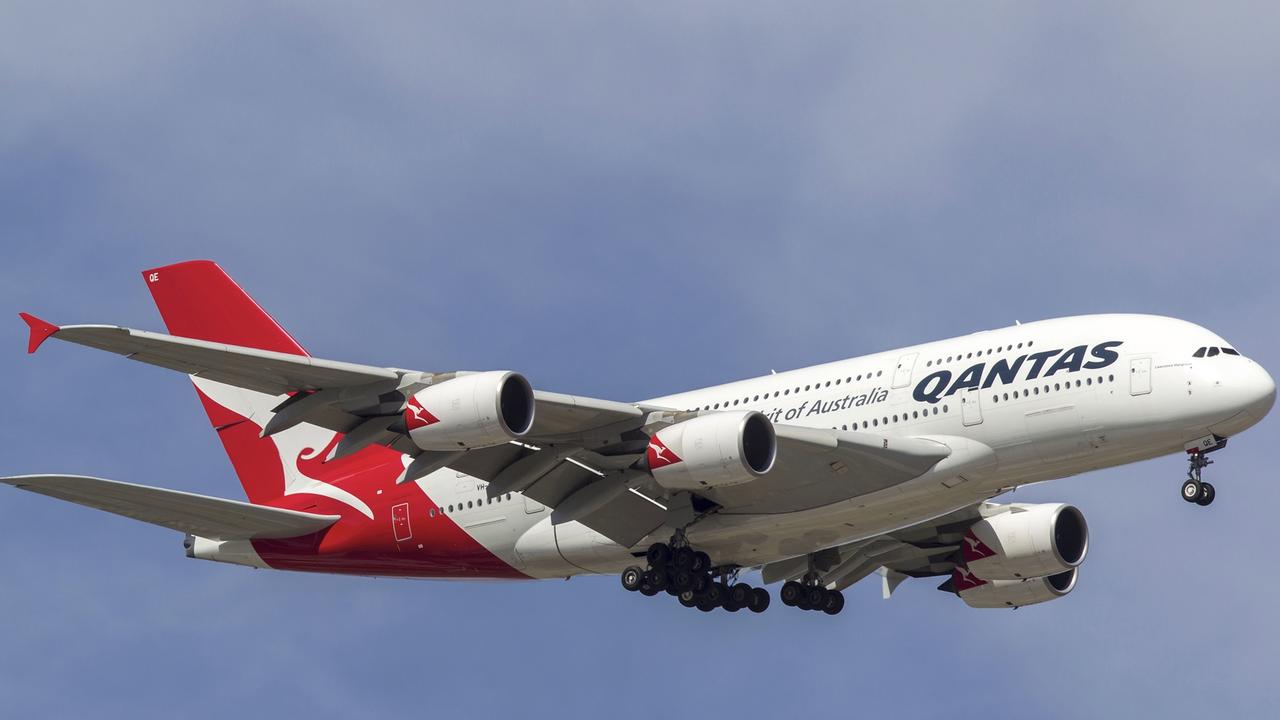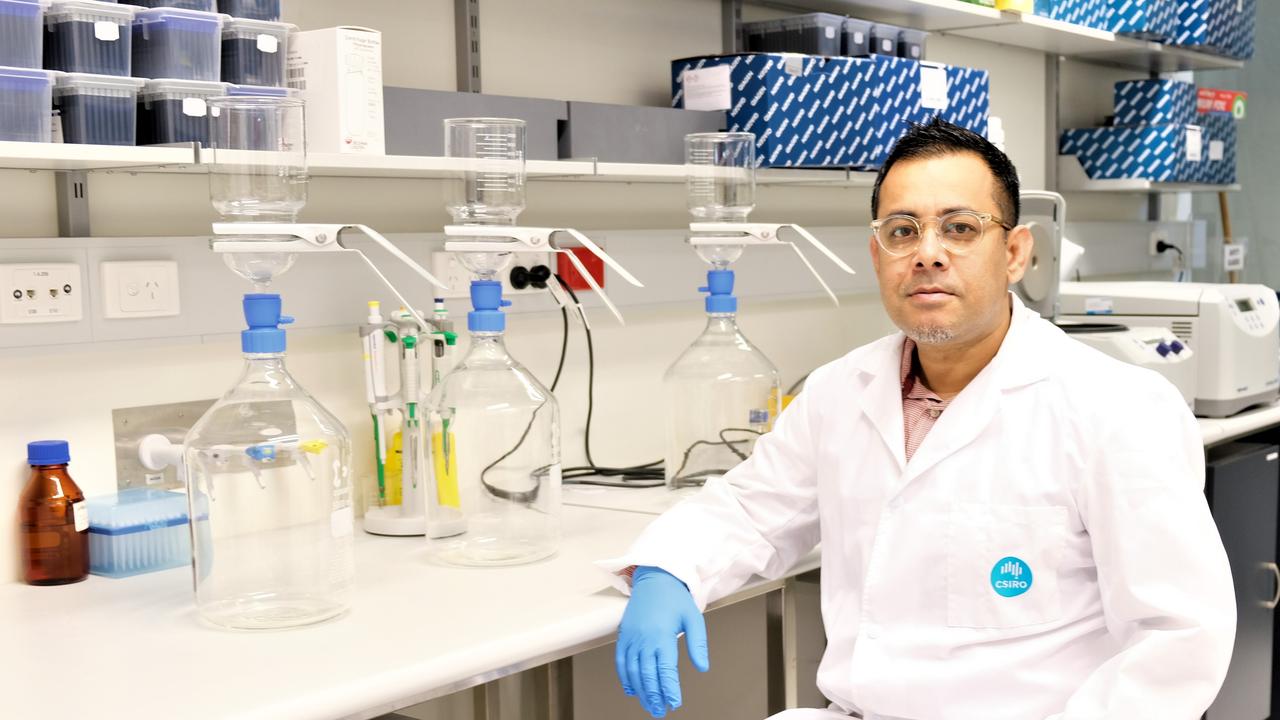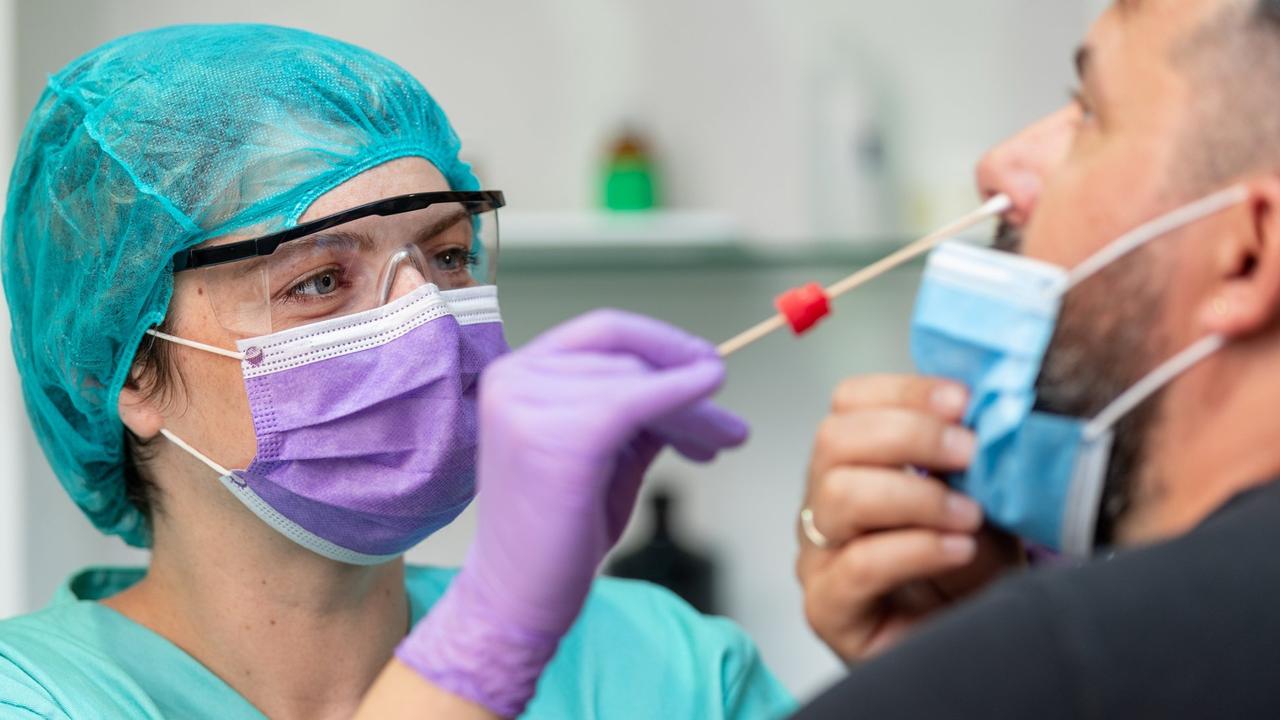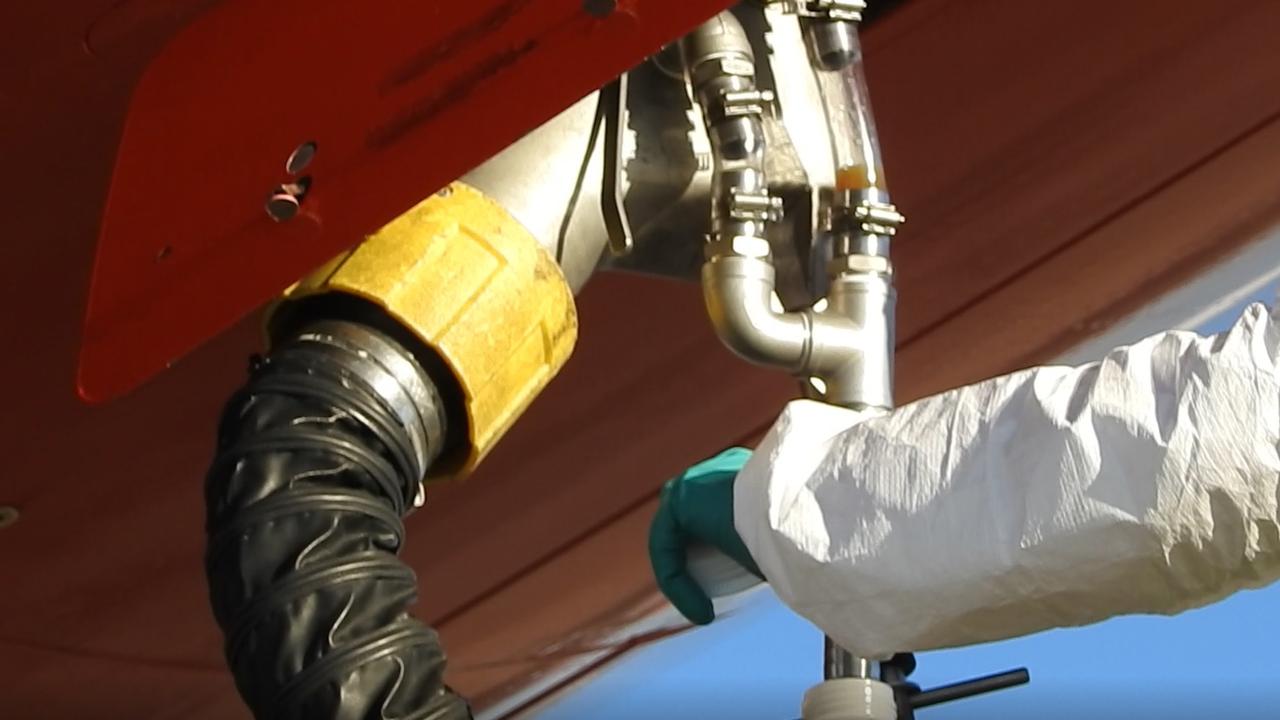Hidden Covid cases picked up in Qantas aircraft wastewater
Hidden Covid cases among aircraft passengers have been identified by wastewater testing on Qantas aircraft.
Wastewater testing of the sewage from multiple Qantas aircraft has picked up over 100 hidden cases of Covid-19, a new study by the CSIRO has revealed.
It’s one of the world’s worst imaginable jobs - but in the name of science - researchers at the CSIRO analysed wastewater samples from dozens of long haul Qantas jets for Covid-19.
They found the repatriation flights bringing stranded Australians home from overseas were also carrying hidden cases of Covid-19.
An alarming 24 of the 37 (65 per cent) flights were positive for the virus that causes Covid-19 despite all the passengers (except children under age five) testing negative to the virus 48 hours before boarding.
The world-leading research demonstrates that wastewater surveillance can provide valuable data for public health agencies and help improve confidence in Australia’s safe reopening as we prepare to re-open the borders.

CSIRO researcher Dr Warish Ahmed said the testing provided an extra line of defence against COVID-19 allowing the virus to be detected even before passengers show symptoms.
“The rapid on-site surveillance of wastewater at points of entry may be effective for detecting and monitoring other infectious agents that are circulating globally and provide alert to future pandemics,” he said.

Professor Jochen Mueller from UQ’s Queensland Alliance for Environmental Health Sciences and co-author on the research said wastewater testing “should be used as part of an efficient clinical surveillance and quarantine system – providing multiple lines of evidence of the COVID-19 infection status of passengers during international travel”.
Published in Environment International, the study analysed wastewater samples from lavatories on Australian Government repatriation flights from Covid-hot spots including India, France, UK, South Africa, Canada and Germany that landed at Darwin International Airport between December 2020 and March this year.
Infected people shed the virus in their faeces about two to five days before showing symptoms which makes this type of testing and early warning signal, the researchers said.
Traces of Covid can also be detected in wastewater from people who were previously infected, still shedding the virus, but are no longer infectious to others (although this is typically a weaker signal).
All the participants in the study were quarantined at the Howard Springs Quarantine Facility in the Northern Territory allowing researchers to check the accuracy of the wastewater testing by comparing their findings with actual PCR test results of the passengers in the 14 day period after they disembarked.
Clinical tests identified 112 cases of COVID-19 among the 6570 passengers (1.7 per cent) in that fortnight, the study said.

Nearly 90 per cent of the time there was agreement between the positive wastewater detections and the subsequent PCR test detections among the passengers.
This was the first time researchers have matched the plane wastewater testing with the follow-up clinical data testing of passengers in quarantine.
Qantas designed a special the sampling trap for the study with input from The University of Queensland.

The surveillance of wastewater from aircraft and cruise ships offers a convenient and cost-effective means of monitoring infectious agents that could be globally scaled to detect and manage the importation of disease, the authors said.
More Coverage
Originally published as Hidden Covid cases picked up in Qantas aircraft wastewater




